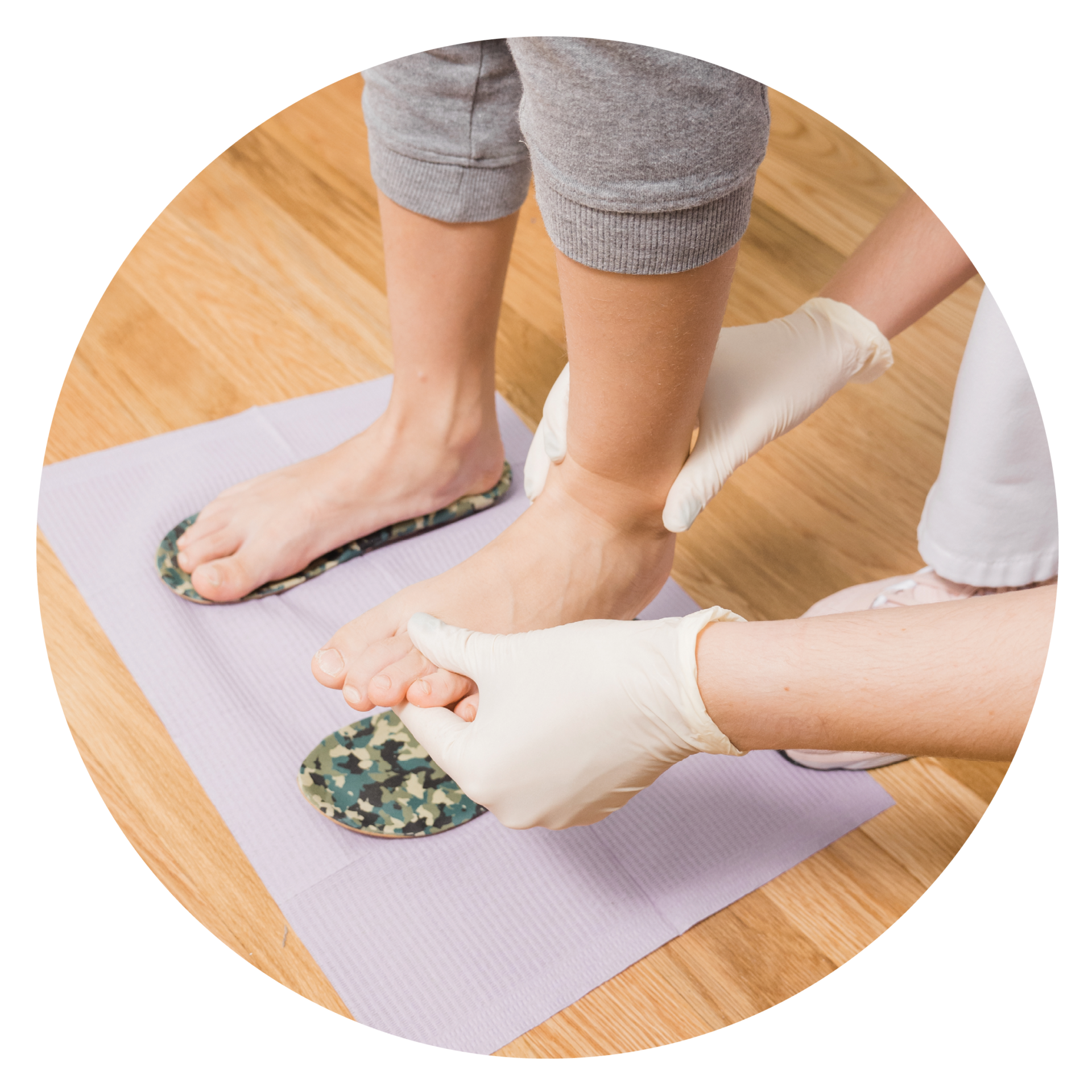I think I have bunions what should I do?
Bunions are typically characterised by a bony bump on the side of the foot over the base joint of the big or little toe. The “bump” occurs as the affected toe angles across to the lesser toes. Often the movement of the bones and joints causes shoe fitting issues and commonly becomes inflamed with shoe pressure. Sometimes, the joint becomes arthritic resulting in pain and balance issues.
Bunions themselves aren’t inherited, but the foot characteristics that cause bunions often are. If you are concerned about developing bunions, or they “run in your family”, then it might be worthwhile seeing a podiatrist where the alignment and biomechanics of your feet can be assessed, and steps taken to reduce the effects of a bunion. This may include: footwear advice, shields to protect your bunion from pressure, orthotic therapy to reduce the forces through the joints and improve alignment and function of the foot.
The best advice is to seek help early from a podiatrist if you are concerned about bunions.
My feet often hurt after I have been walking a lot or standing all day. Is this normal or should I see a podiatrist?
No this is not normal, but very common. There are numerous reasons why your feet could be hurting after being on them for long periods. It could be as simple as ill-fitting footwear or the incorrect footwear for the activity. Other causes could include poor posture or biomechanics of your feet or more serious issues such as problems with circulation. If you do experience pain and it is affecting your mobility, it is advised to have your feet checked by a podiatrist as early diagnosis and intervention is often best.
I have diabetes, I know I should keep an eye on my feet, but what does this mean?
Literally that! Regularly look at your feet or have someone (a podiatrist) do it for you. Uncontrolled diabetes can have a detrimental effect on the nerves and blood vessels of the feet which in turn can have very serious consequences. Podiatrists are trained to assess the nerve and blood vessel function in your feet and identify and treat any areas of concern and monitor those that could cause issues in the future. Prevention is better than cure and a regular appointment with a podiatrist is paramount in maintaining foot health and mobility in diabetics.

How do I know if I need orthotics?
Painful, tired and aching feet are often a sign that your feet aren’t functioning correctly, and that orthotics may be needed. Other signs include ankle, knee, hip and lower back pain. Unusual wear patterns on shoes are often a clue. Place your shoe on a bench and see if it is distorted in any way. If so, it may indicate that your foot is rolling inwards or outwards. Additionally, turning the shoe over and finding uneven wear patterns on the sole can indicate incorrect foot biomechanics. The recommended way to know if orthotics can help you is to make an appointment with a podiatrist where you can discuss any concerns and have your feet professionally assessed.
I have never seen a podiatrist, should I be booking an appointment?
Podiatrists treat a large range of disorders affecting the feet and lower limb including (but not limited to) ingrown toenails, heel pain, cracked heels, corns and calluses, nail care, flat feet, orthotics, children’s feet and diabetes care. No matter the concern, large or small, if it concerns the feet or lower limb, then a podiatrist can help or at least point you in the right direction to get help.
What happens in an appointment with a podiatrist?
During your appointment, you will be asked about the history of your complaint and general health. The podiatrist will then do a thorough assessment and determine an appropriate treatment plan. In the case of routine care including nails, corns, callus, dry skin etc you can often be treated there and then and walk out pain free. If orthotics are required, or an injury is being treated, then further appointments may be necessary. Podiatrists regularly refer to and work together with other health professionals to maximise your treatment outcomes.